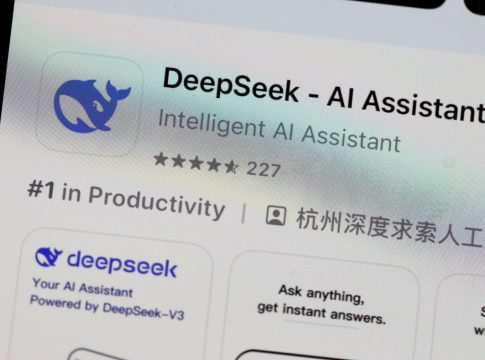Bipartisan Push to Restrict Chinese AI in U.S. Federal Agencies
In a robust response to rising concerns over national security, lawmakers from both sides of the aisle have introduced the No Adversarial AI Act, which aims to prohibit federal agencies from utilizing artificial intelligence systems linked to the Chinese government. This bipartisan initiative, led by Reps. John Moolenaar (R-Mich.) and Raja Krishnamoorthi (D-Ill.), is designed to counteract perceived threats from foreign technological influences, particularly from China.
Context: Rising Concerns Over DeepSeek
This legislative move is largely motivated by apprehensions surrounding DeepSeek, a Chinese startup known for its cost-effective AI solutions. Recent reports suggest that DeepSeek’s technologies are not just commercially oriented but might also provide support to Chinese military and intelligence operations. This revelation has alarmed U.S. tech firms and triggered a series of proposals to curtail its influence.
Federal agencies, including NASA, have acted independently by issuing memoranda to restrict the deployment of such technologies. The growing alarm, highlighted by statements from U.S. officials, underscores the urgency of this issue amid ongoing geopolitical tensions.
Key Provisions of the Bill
The No Adversarial AI Act proposes several noteworthy mechanisms:
-
Creation of a Restricted List: The Federal Acquisition Security Council will be tasked with maintaining a list of AI systems considered adversarial, making it easier for agencies to abide by the new rules.
-
Delisting Process: Companies can challenge their inclusion on the list, providing an opportunity to demonstrate that they do not engage in partnerships that could compromise U.S. interests.
- Formal Ban on Adversarial Technologies: The legislation seeks to prohibit federal engagement with these AI systems, with few exceptions.
Implications for National Security
As highlighted by Senator Rick Scott’s assertions, the implications of utilizing Chinese-linked AI technology are profound. “With clear evidence that China can have access to U.S. user data on AI systems, it’s absolutely insane for our own federal agencies to be using these dangerous platforms,” he stated.
Krishnamoorthi echoed similar sentiments, emphasizing that AI systems from adversarial nations simply should not be incorporated into U.S. government operations. This reflects a growing realization among lawmakers that the security of government data must take precedence.
The Broader Legislative Landscape
This act isn’t occurring in isolation. Other proposals have emerged, including efforts to ban DeepSeek from all federal devices entirely, highlighting a concerted effort to protect U.S. technology and innovation from potential threats.
In a digital economy increasingly defined by artificial intelligence, the implications of these legislative measures extend beyond merely hindering foreign influence. They represent a significant moment in the ongoing battle between safeguarding innovation and protecting national security—a theme reflective of earlier eras in technology, where the lines between advancement and security were often blurry.
Conclusion
As the arena of artificial intelligence continues to evolve, the stakes appear higher than ever. Policymakers are recognizing the urgent need to secure U.S. interests in an increasingly interconnected world. The No Adversarial AI Act, with its comprehensive measures against foreign adversaries, may set a new precedent in how we govern technologies that are poised to redefine the future. As these discussions unfold, the implications for both innovation and national security remain critical and complex.

Writes about personal finance, side hustles, gadgets, and tech innovation.
Bio: Priya specializes in making complex financial and tech topics easy to digest, with experience in fintech and consumer reviews.

